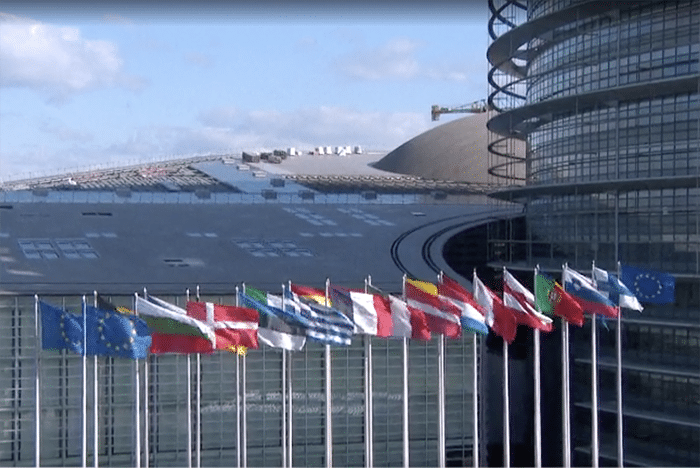Recognizing the past “collective failure” in the Conference’s final declaration, world leaders called for greater ambition to ensure that the dire state of the ocean is addressed, and admitted frankly to being “deeply alarmed by the global emergency facing the ocean”.
At the closing, the UN Under-Secretary-General for Legal Affairs, Miguel de Serpa Soares, commended co-hosts – Portugal and Kenya – for the conference’s enormous success.
“[The Conference] has given us the opportunity to unpack critical issues and generate new ideas. It also made clear the work that remains, and the need to scale up that work for the recovery of our ocean”, Mr. Serpa Soares said, adding that it is essential to now turn the tide.
More than 6,000 participants, including 24 Heads of State and Government, and over 2,000 representatives of civil society attended the Conference, advocating for urgent and concrete actions to tackle the ocean crisis.
Collective failure
Recognizing a “collective failure to achieve Ocean related targets” so far, leaders renewed their commitment to take urgent action and to cooperate at all levels, to fully achieve targets as soon as possible.
Among the challenges the Ocean faces are coastal erosion, rising sea levels, warmer and more acidic waters, marine pollution, overexploitation of fish stocks and decrease of marine biodiversity.
Acknowledging that climate change is “one of the greatest challenges of our time”, and the need to “act decisively and urgently to improve the health, productivity, sustainable use and resilience of the ocean and its ecosystems”, top politicians gathered in Lisbon stressed that science-based and innovative actions, along with international cooperation, are essential to provide the necessary solutions.
Calling for transformative change, leaders stressed the need to address the cumulative impacts of a warming planet, on the ocean, including ecosystem degradation and species extinctions.
Reaffirming commitments
Reaffirming that the ocean is fundamental to life on our planet and to our future, the signatories emphasized the particular importance of implementing the Paris Agreement of 2015, and last November’s Glasgow Climate Pact to help ensure the health, productivity, sustainable use, and resilience of the ocean.
“We are committed to halting and reversing the decline in the health of the ocean’s ecosystems and biodiversity, and to protecting and restoring its resilience and ecological integrity.
Voluntary commitments include:
- The Protecting Our Planet Challenge will invest at least USD $1 billion to support the creation, expansion, and management of marine protected areas by 2030.
- The European Investment Bank will extend an additional EUR 150 million across the Caribbean Region as part of the Clean Oceans Initiative to improve climate resilience, water management and solid waste management.
- Portugal committed to ensure that 100 per cent of the marine area under Portuguese sovereignty or jurisdiction is assessed as being in Good Environmental State and classify 30% of the national marine areas by 2030.
- Kenya is currently developing a national blue economy strategic plan, inclusive and multistakeholder-oriented. Kenya also committed to developing a national action plan on sea-based marine plastic litter.
- India committed to a Coastal Clean Seas Campaign and will work toward a ban on single use plastics.
“We call for an ambitious, balanced, practical, effective, robust, and transformative post-2020 global biodiversity framework”, the Lisbon declaration continued.
Resilient and healthy marine environments are the foundations of climate regulation and sustainable development, with the potential to produce food and energy for billions.
At the conference, more than 150 Member States made voluntary commitments to conserve or protect at least 30 percent of the global ocean within Marine Protected Areas, and other effective area-based conservation measures, by 2030.
“I am impressed by the new commitments [countries made], Mr. Serpa Soares said at the closing ceremony, adding that “commitments must be implemented at pace and monitored”. Some examples include:
- Protecting or exceeding 30% of national maritime zones by 2030
- Achieving carbon neutrality by 2040
- Reducing plastic pollution
- Increasing renewable energy use
- Allocating billions of dollars to research on ocean acidification, climate resilience projects and to monitoring, control and surveillance
Beyond 2030
The United Nations Decade of Ocean Science for Sustainable Development (2021-2030) aims to achieve the science we need, for the ocean we want.
With the mission to generate and use knowledge for the transformational action needed to achieve a healthy, safe, and resilient ocean for sustainable development by 2030 and beyond, the Intergovernmental Oceanographic Commission (IOC) of the UN Scientific, Educational and Cultural Organization (UNESCO) is driving development for the Decade of action.
For that, the Decade framework is designed to produce better-informed ocean management, restore fish stocks; mobilize actions for sustainable fisheries and sustainable aquaculture for sufficient, safe and nutritious food.
It’s also geared to reducing marine pollution of all kinds, from both land and sea based sources, and work towards more effective marine protection, and develop and implement measures to adapt to climate change, reducing disaster risk, and the impacts of sea level rise, together with reducing emissions from maritime transportation.
Recognizing that developing countries, in particular small island developing States (SIDS) and least developed countries, face particular capacity challenges, political leaders are committing to strengthen data collection efforts, and enhancing cooperation at all levels to share knowledge.
After Lisbon
Financing is another particular focus of the declaration. The seven-page document states that innovative financing solutions must be found to drive the transformation towards sustainable ocean-based economies, and scale up nature-based solutions, as well as ecosystem-based approaches to support the resilience, restoration, and conservation of coastal ecosystems.
Declaring that the Conference proved the Blue Economy is now a huge part of the future security of humanity, the UN Secretary-General’s Special Envoy for the Ocean, Peter Thomson, called for more financial resources for it.
He noted that the Secretary-General had pushed for consensus, after launching a red alert for humanity, and Mr. Thomson added that 2022 was proving to be a “super year”, calling for young people to be at the table for all the discussions on the ocean’s future, moving forward.
Speaking to UN News, Miguel de Serpa Soares added that the UN Ocean Conference was not the sole focus for ocean action this year.
“In the next several months, we will have several crucial events that hold many opportunities to demonstrate our commitments and ambition to turn the tide in favour of ocean sustainability”.
Following the event in Lisbon, the path to save our ocean will continue through the Intergovernmental Conference on a treaty on marine biodiversity of areas beyond national jurisdiction, the Post-2020 Global Biodiversity Framework negotiations, and the negotiations for increased climate finance and adaptation actions at COP27 in Egypt.
Empower youth, women, and indigenous people
Recognizing the important role of indigenous, traditional, and local knowledge, innovation and practices held by indigenous peoples, as well as the role of social science in planning, decision-making and implementation, leaders are calling to meaningful participation of local communities.
“Empower women and girls, as their full, equal and meaningful participation is key in progressing towards a sustainable ocean-based economy and to achieving Goal 14”, the declaration highlights, stressing the importance of giving the power to youth to enable them to understand the “need to contribute to the health of the ocean, including in decision-making, through promoting and supporting quality education and life-long learning for ocean literacy”.
Calling on stakeholders to urgently take ambitions and concerted action to accelerate implementation to achieve Goal 14, the Conference concluded saying that “restoring harmony with nature through a healthy ocean is critical for the planet”.
Hope, and urgency
Encouraged by a renewed sense of hope and urgency about our future ocean, Mr. Serpa Soares concluded: “as we leave, we must follow-up on our commitments”.
“As the famous Tongan and Fijian writer Epeli Hau‘ofa said, we are the ocean. The ocean is in all of us, it is what sustains us, and it is the basis for our future survival on this planet Earth.”, he said.
The power of science
Building on the scientific focus of the week, UNESCO launched its key State of the Ocean Report on Friday.
The report was developed to provide new and revealing data on the current state of the ocean, structured around the initial 10 challenges of the Decade.
UNESCO’s Chief of the Ocean Science Section, Henrik Enevoldsen, spoke to UN News and said that the report complemented the scientific work of the conference, enhancing our capacity to manage the ocean.
Talking about the outcome of the conference he said it “highlighted the areas where we need more knowledge to provide a proper basis for decision makers [and to] better manage the ocean.
UN News has been on the ground in Lisbon, Portugal, all week, bringing you multimedia coverage of the Ocean Conference. You can access all our reports and interviews, here.













